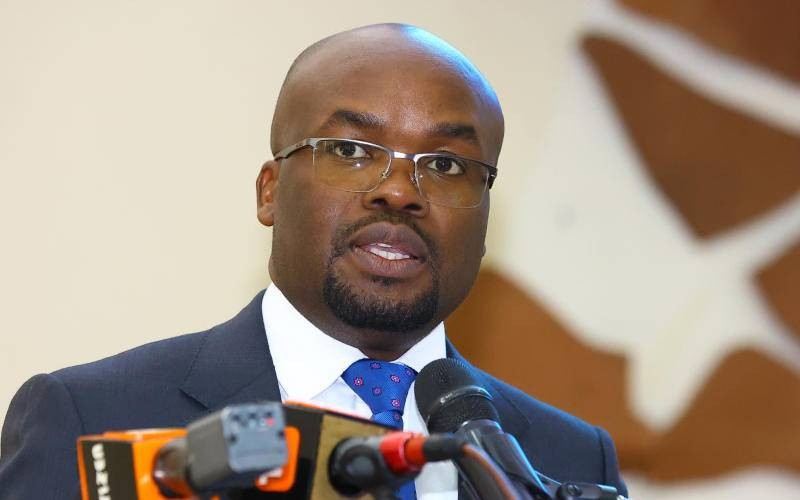×
The Standard e-Paper
Stay Informed, Even Offline

Interior PS Dr. Raymond Omollo gives his remarks during the official launch of the National Farmer registration Trainer-of-Trainers (ToT) training for Assistant Country Commissioners at the Kenya School of Government on January 4, 2023. [Kelly Ayodi, Standard]
Kenya is now engaging her neighbours to fight the cross-border smuggling of illegal firearms which have been fueling violent conflicts and crimes in the region.